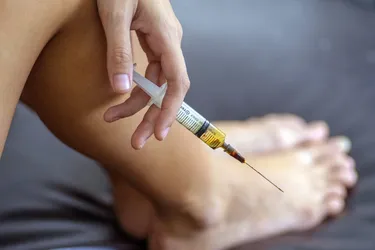
May 17, 2023 – Jose Martinez spent several years unhoused, jobless, and trapped in a cycle of addiction to synthetic marijuana – a lab-created drug that affected his mind and behavior and is dangerous and sometimes deadly.
His life changed when the Bronx, NY, resident began recovery in 2017, which he credits in large part to what is now an overdose prevention site in New York City’s Harlem neighborhood – one of two official so-called safe injection sites in the United States, where people can use illicit drugs under supervision of trained staff to prevent death and illness.
The other is in the city’s Washington Heights neighborhood. At the time, both locations were needle exchanges, which merged and added supervised injection to create OnPoint NYC in 2021.
Though Martinez did not inject drugs, he took advantage of the other resources there, including laundry facilities and showers.
“People can access safer supplies, but also mental health services, and I used those,” said Martinez, 35. “Before that, I tried rehab and detox, and they didn’t work for me. The [site] helped me get there when I was ready.”
He added, “We were a community, like a family.”
The federal government will, for the first time, bankroll a study of how well overdose prevention sites work, according to an announcement on May 8.
A grant of more than $5 million over 4 years will go to New York University and Brown University in Providence, RI, to study 1,000 people at New York’s two sites, along with one set to open in Providence next year.
The announcement comes as deadly overdoses continue to claim lives across the country. There were more than 106,000 overdose deaths in 2021.
The approach is controversial, with critics claiming it enables illegal drug use and brings crime into surrounding areas. But overdose prevention sites already operate in 14 countries, including Canada. There are efforts to open these facilities in Colorado, New Mexico, and Nevada.
For and Against
Opponents include the International Association of Chiefs of Police, Pennsylvania Gov. Josh Shapiro (D), and former U.S. attorney for Colorado Jason Dunn. Some argue that giving the green light to a study of illicit drug use breaks the law.
“If the Biden administration wants to fund a study of illegal activity, it should be honest about it and ask Congress to change the law,” said Paul Larkin, a senior legal research fellow at conservative think tank The Heritage Foundation.
Though there has never been a large-scale study of supervised injection in the U.S., other countries have examined how well it works. A 2021 study out of Canada found a 26% decrease in overdose deaths surrounding a supervised injection site in Vancouver, compared with the rest of the city.
Proponents also say having designated spaces for people struggling with addiction cuts down on public drug use and litter like used needles.
It can also be a touchpoint for people who are ready to enter recovery, said Miriam Komaromy, MD, medical director for the Grayken Center for Addiction at Boston Medical Center.
“Preventing deaths is not the same thing as treatment; no one thinks it’s the same thing,” she said. “It builds trust with people often alienated from society because of stigma. If you can build trust, that’s the bridge to getting someone treatment.”
Martinez – who now has found work doing street outreach for the National Harm Reduction Association advocacy organization – said he sees people avoid deadly overdoses and infectious diseases like hepatitis, HIV, and AIDS because of the clean supplies and trained staff at supervised injection sites.
“Everybody deserves a chance and an opportunity,” he said. “It’s not up to other people to dictate what that looks like.”
24World Media does not take any responsibility of the information you see on this page. The content this page contains is from independent third-party content provider. If you have any concerns regarding the content, please free to write us here: contact@24worldmedia.com